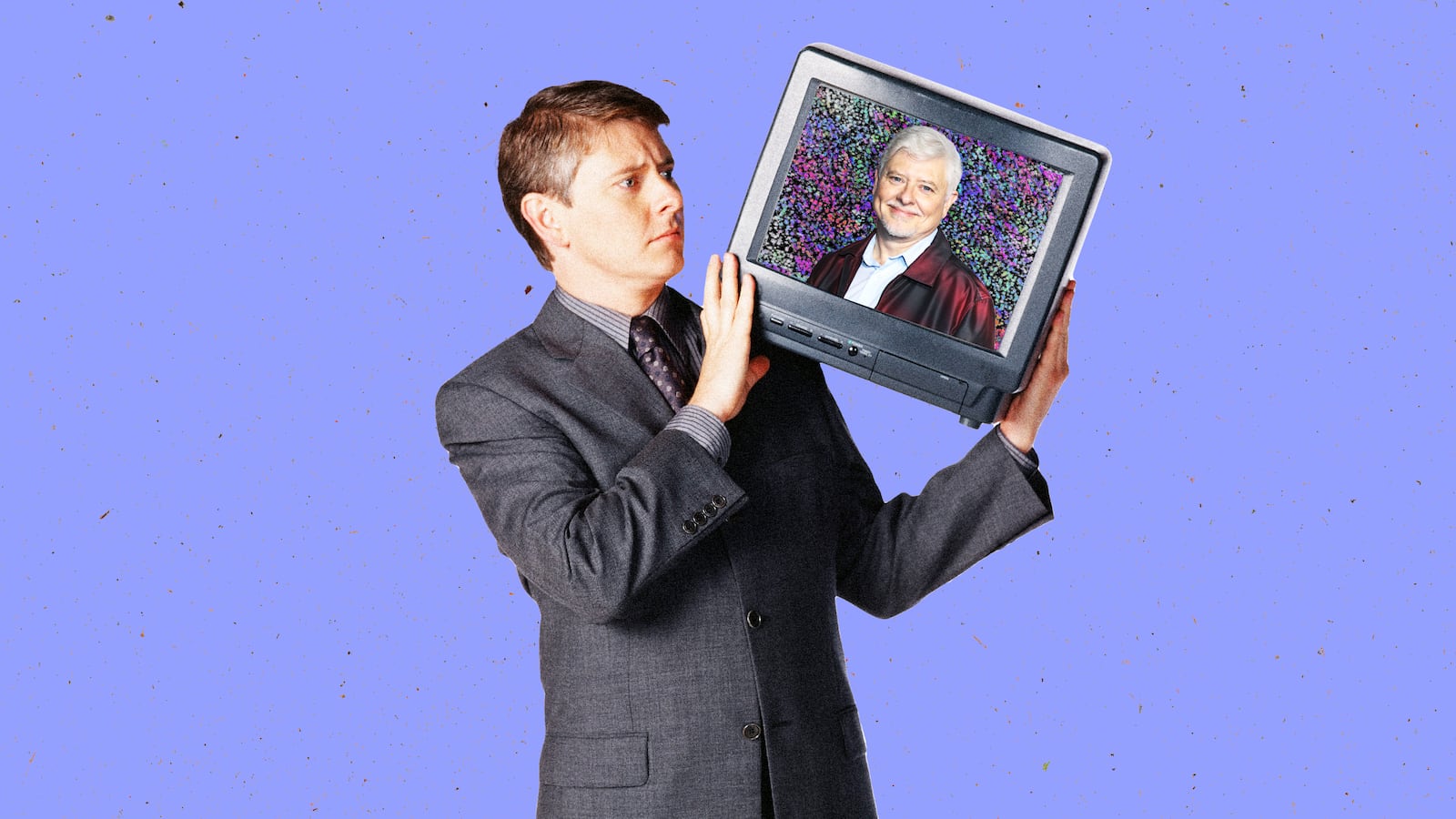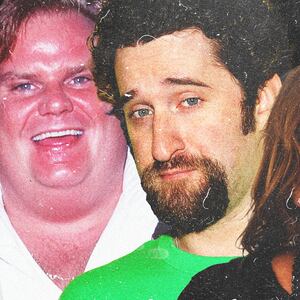Comedian Dave Foley is thankful to be the narrator and not one of the subjects of Vice TV’s Dark Side of Comedy docuseries. The co-founder of the iconic sketch group Kids in the Hall, which premiered its long-awaited sixth season on Amazon Prime Video earlier this year, had his share of life-threatening troubles before cleaning up his act and finally getting sober a few years back.
In this episode of The Last Laugh podcast, Foley talks about why so many comedians have grim backstories, traces the contentious history of Kids in the Hall, recalls the best audition of his career (for the role of Michael Scott on The Office), and reflects on working with outsized personalities like Andy Dick, Joe Rogan, and Phil Hartman on Newsradio.
Foley was certain he was not going to have to make an acceptance speech at the Hollywood Critics’ Association’s HCA TV Awards dinner earlier this month. “Don’t worry, I’m not gonna win, Kids in the Hall never wins anything,” he recalls telling his daughter that night. So he was genuinely shocked when the show’s big reunion season took home the prize for Best Streaming Variety Sketch Series, Talk Series, or Special, beating out South Park, Harry Potter, and Jon Stewart, among others. He even managed to make it onto TMZ for joking in his speech that Amazon is “ruining the planet.”
“That was so ridiculous,” Foley says, noting that there are jokes at Amazon’s expense peppered all throughout the new season. “Not only did they not care that we were making jokes about them, they actually seemed to like it. They encouraged it.”
The 59-year-old Canadian-born comedian has survived for so long in the entertainment business—from launching the Kids in the Hall sketch show with Bruce McCulloch, Kevin McDonald, Mark McKinney, and Scott Thompson in the late ’80s, to starring in the NBC sitcom Newsradio in the mid-’90s, to finding a whole new career as an animation voiceover artist in Pixar films like A Bug’s Life and Monster’s University—that his only real fear is not being around to keep making people laugh as he gets older.
“Comedy has been my life for more than 40 years. And I’ve certainly seen a lot of the dark side of comedy over the years,” Foley says, explaining how he ended up being the narrator for Vice’s latest docuseries, which examines the rise and fall of icons like Chris Farley, Roseanne Barr, and Richard Pryor. “I think I’ve come very close to being the subject of this series,” he admits. “I’m glad I didn’t. I’m glad I’m still alive.”
About seven years ago, he landed himself in the ICU after passing out drunk and cracking his head open at a party in downtown L.A. “That was a dark time and I’m lucky I got through it,” he says. Not only did he stop drinking and taking prescription drugs after his accident, but he says “the head trauma actually seemed to reorganize my brain a little in that I stopped having an urge to drink, which was more important,” adding, “that was purely neurological damage that turned out to be positive.
“Some people have a head injury and suddenly they can play the piano or do photorealistic paintings,” Foley jokes, “which would have been a lot cooler than just not wanting a drink.”
Dark Side of Comedy reinforces the notion that comedians have to be messed up in some fundamental way in order to be funny. “Sadly, it’s largely true for the comedians I like,” Foley says. “The kind of comedy I like seems to come out of a darker place.” And while you “don’t have to be damaged to be funny,” he clarifies, citing the “completely balanced and lovely” Bob Newhart as one counterexample, “it seems to be what breeds the kind of comedy I’m attracted to more often.”
He also counts his fellow Kids in the Hall members as a “pretty good example of a bunch of very damaged people,” explaining that “most of us grew up in the houses of alcoholics or abusive parents in some way.”
The original five seasons of their sketch show ran from 1989 to 1995, culminating in the 1996 film Brain Candy, which aimed to skewer the pharmaceutical industry. When I note that the movie was not the critical and financial success they would have wanted, Foley jokes, “But it was, on the other hand, a critical and financial failure.”
In Comedy Punks, a recent documentary about the group, Brain Candy is described as a comedy about depression made by depressed comedians. “Really? A bunch of guys who do a ton of drugs are going to make an anti-drug movie?” Foley recalls thinking at the time. “Is there somebody in the group that isn’t self-medicating? Because if there is, I’m not aware of it.”
The four other members of the group actually threatened to sue Foley in order to force him to appear in the movie, which he says he didn’t want to make mostly because he “didn't want to be around them.” According to Foley, the drama stemmed from their attempt to block him from taking the lead role in Newsradio because it would mean he had to miss part of their scheduled live tour. All was eventually resolved, but the resentments lingered, especially as Newsradio took off and Brain Candy flopped.
Those old tensions were still present when the troupe reunited this past year for the revival season of Kids in the Hall, but Foley says the arguments were “less volatile and less protracted.”
“I don’t think it’ll ever fully go away because it’s the nature of who we are as individuals,” he says. “We’re not easy to get along with. And we’ve never worked out any kind of a democratic way of settling disputes. It’s just whoever's willing to fight the longest wins. But it’s definitely less volatile and I think there’s more of an acknowledgement of the affection between us all now.”
As for the group’s future, Foley predicts, “Regardless of what happens with the series, I think there’s going to be more Kids in the Hall stuff down the road just because we’re all really proud of the show we made.”
When I note how remarkable and, frankly, unusual it is that all five of the group’s original members are still committed to this life-long comedy project, Foley replies, “Yeah, and still alive!”
“Let’s face it, it’s a ticking clock at this point,” he adds with a laugh. “The odds are good that one of us won’t be around much longer.”
Listen to the episode now and subscribe to ‘The Last Laugh’ on Apple Podcasts, Spotify, Google, Stitcher, Amazon Music, or wherever you get your podcasts, and be the first to hear new episodes when they are released every Tuesday.



